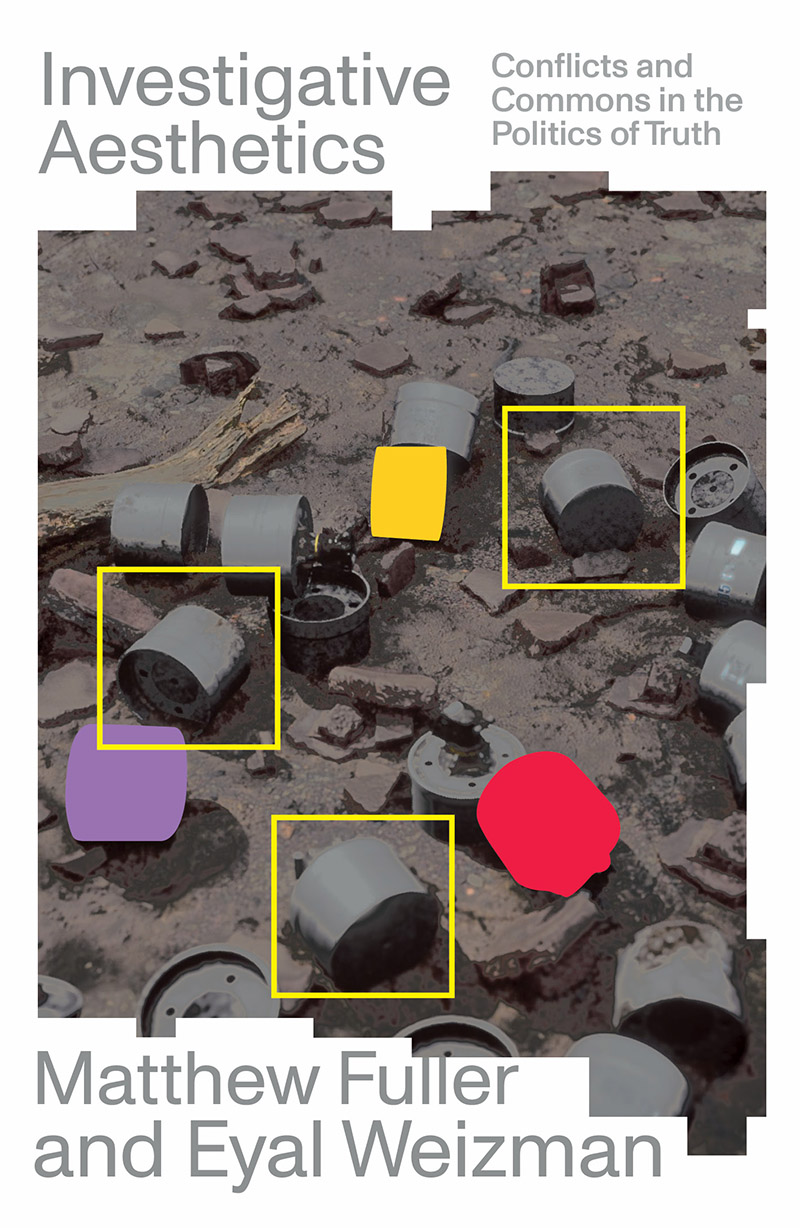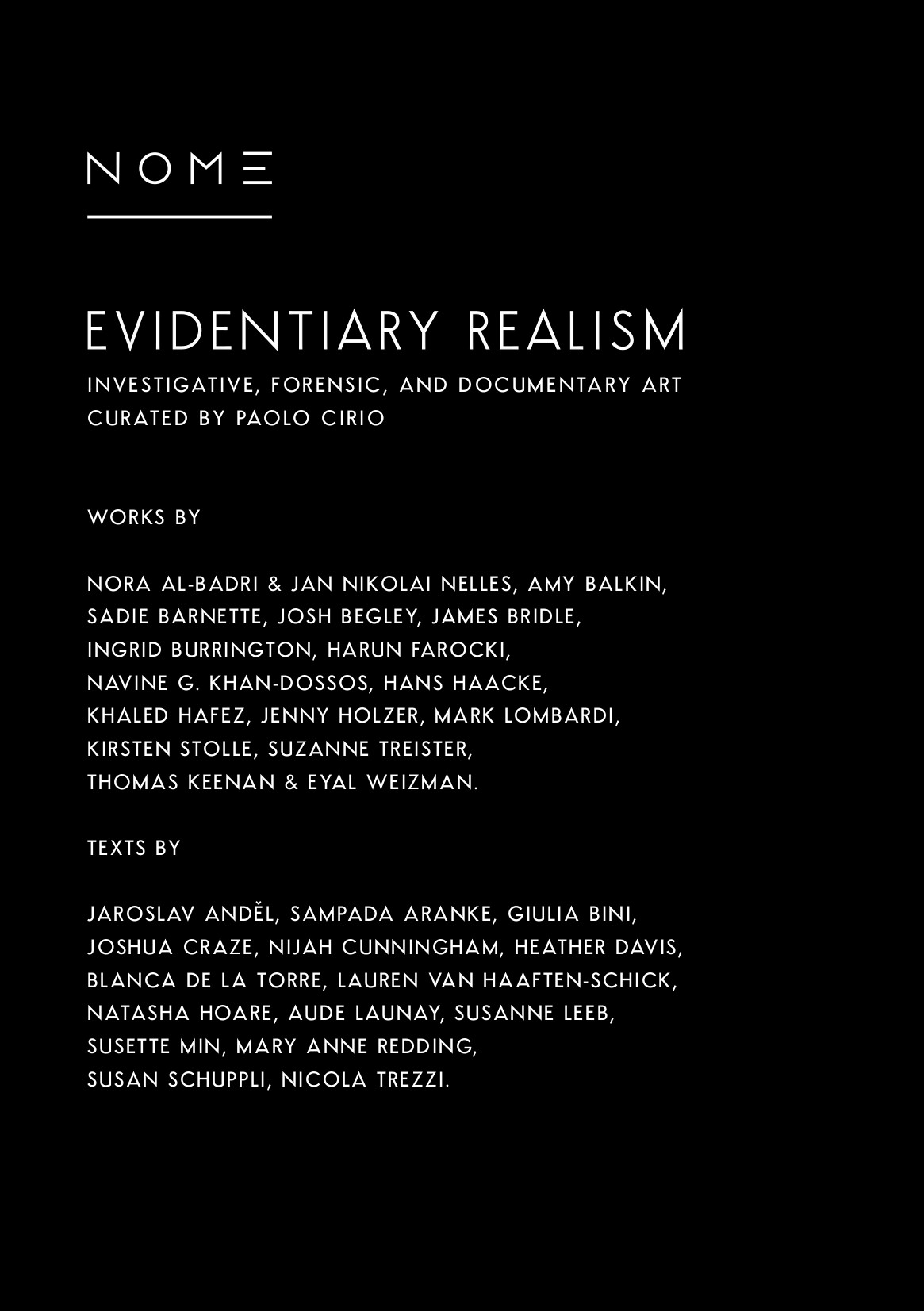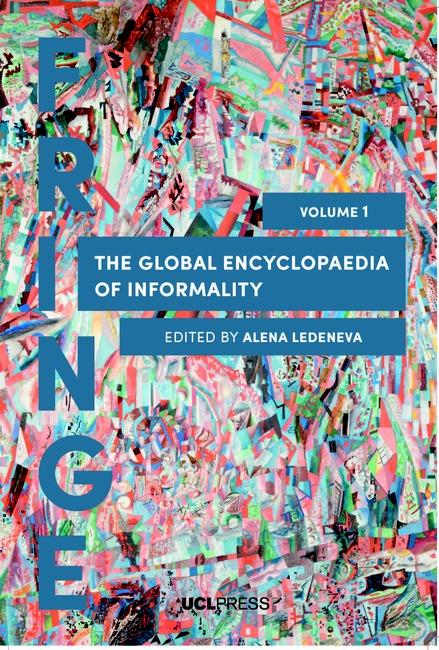Matthew Fuller, Eyal Weizman: Investigative Aesthetics: Conflicts and Commons in the Politics of Truth (2021)
Filed under book | Tags: · aesthetics, architecture, art, commons, corruption, environment, forensics, human rights, investigation, politics, technology, truth

“A new field of counterinvestigation in journalism, human rights, art and law
Today, artists are engaged in investigation. They probe corruption, human rights violations, environmental crimes and technological domination. At the same time, areas not usually thought of as artistic make powerful use of aesthetics. Journalists and legal professionals pore over opensource videos and satellite imagery to undertake visual investigations. This combination of diverse fields is what the authors call “investigative aesthetics”: the mobilisation of sensibilities associated with art, architecture and other such practices in order to speak truth to power.
Investigative Aesthetics draws on theories of knowledge, ecology and technology; evaluates the methods of citizen counter-forensics, micro-history and art; and examines radical practices such as those of WikiLeaks, Bellingcat, and Forensic Architecture. These new practices take place in the studio and the laboratory, the courtroom and the gallery, online and in the streets, as they strive towards the construction of a new common sense.
Matthew Fuller and Eyal Weizman have here provided an inspiring introduction to a new field that will change how we understand and confront power today.
To Nour Abuzaid for your brilliance, perseverance, and unshaken belief in the liberation of Palestine.”
Publisher Verso Books, London, August 2021
ISBN 9781788739085, 1788739086
259 pages
Review: Chris Hayes (Tribune, 2021).
EPUB (updated on 2022-11-21)
Comment (0)Evidentiary Realism: Investigative, Forensic, and Documentary Art (2017)
Filed under catalogue | Tags: · art, corruption, documentary, forensics, human rights, journalism, politics, realism, surveillance, truth

“Evidentiary Realism aims to articulate a form of realism in art that portrays and reveals evidence from complex social systems. The truth-seeking artworks featured explore the notion of evidence and its modes of representation.
Evidentiary Realism reflects on post-9/11 geopolitics, increasing economic inequalities, the erosion of civil rights, and environmental disasters. It builds on the renewed appreciation of the exposure of truth in the context of the cases of WikiLeaks, Edward Snowden, the Panama Papers, and the recent efforts to contend with the post-factual era.”
The exhibition was held at Fridman Gallery, New York, 28 February-31 March 2017, and Nome Gallery, Berlin from 1 December 2017-17 February 2018.
Curated and organised by Paolo Cirio.
Artworks by Nora Al-Badri & Nikolai Nelles, Amy Balkin, Sadie Barnette, Josh Begley, James Bridle, Ingrid Burrington, Hans Haacke, Khaled Hafez, Jenny Holzer, Harun Farocki, Navine G. Khan-Dossos, Thomas Keenan & Eyal Weizman, Mark Lombardi, Kirsten Stolle, Suzanne Treister.
Texts by Jaroslav Anděl, Sampada Aranke, Giulia Bini, Nijah Cunningham, Heather Davis, Blanca de la Torre, Lauren van Haaften-Schick, Natasha Hoare, Aude Launay, Susanne Leeb, Susette Min, Mary Anne Redding, Susan Schuppli, and Nicola Trezzi.
Publisher NOME, Berlin, 2017
Creative Commons BY-NC-ND License
ISBN 9780244342739, 0244342733
171 pages
Project website
Curator, exh. reviews
WorldCat
The Global Encyclopaedia of Informality, 2 vols. (2018)
Filed under book, online resource | Tags: · blat, commodity, corruption, encyclopedia, gift, governance, informal economy, informality, market, social science, society, sociology, solidarity

“Alena Ledeneva invites you on a voyage of discovery to explore society’s open secrets, unwritten rules and know-how practices. Broadly defined as ‘ways of getting things done’, these invisible yet powerful informal practices tend to escape articulation in official discourse. They include emotion-driven exchanges of gifts or favours and tributes for services, interest-driven know-how (from informal welfare to informal employment and entrepreneurship), identity-driven practices of solidarity, and power-driven forms of co-optation and control. The paradox, or not, of the invisibility of these informal practices is their ubiquity. Expertly practised by insiders but often hidden from outsiders, informal practices are, as this book shows, deeply rooted all over the world, yet underestimated in policy. Entries from the five continents presented in this volume are samples of the truly global and ever-growing collection, made possible by a remarkable collaboration of over 200 scholars across disciplines and area studies. By mapping the grey zones, blurred boundaries, types of ambivalence and contexts of complexity, this book creates the first Global Map of Informality. The accompanying database (www.in-formality.com) is searchable by region, keyword or type of practice.”
Edited by Alena Ledeneva, with Anna Bailey, Sheelagh Barron, Costanza Curro, and Elizabeth Teague
Fringe series
Publisher UCL Press, London, 2018
Creative Commons BY 4.0 License
ISBN 9781911307907 & 9781787351899
xxix+434 & xxix+538 pages
Publisher, Vol. 2
OAPEN, Vol. 2
WorldCat, Vol. 2
Volume 1: PDF, PDF (10 MB)
Volume 2: PDF (15 MB)
Online resource (wiki)

